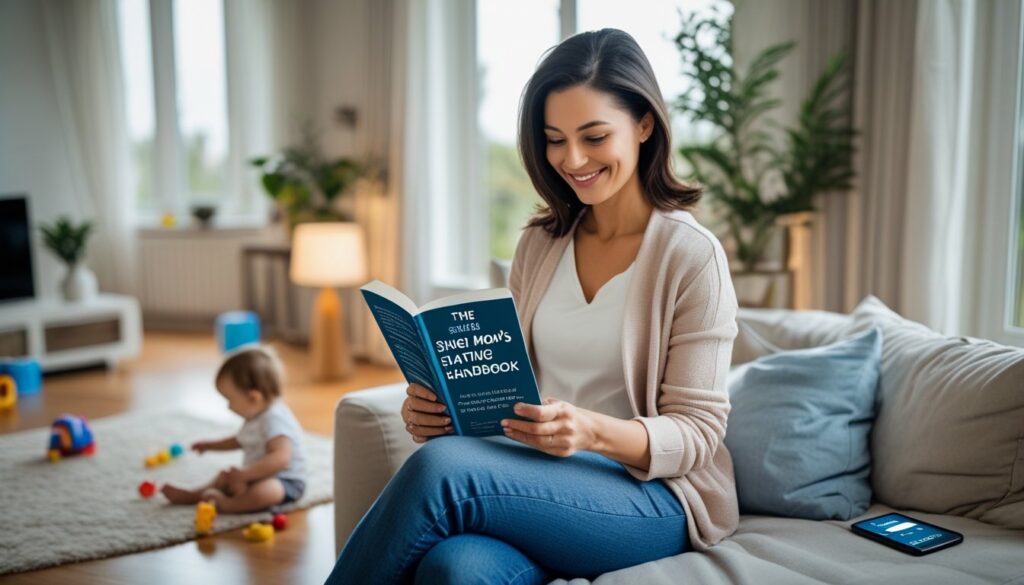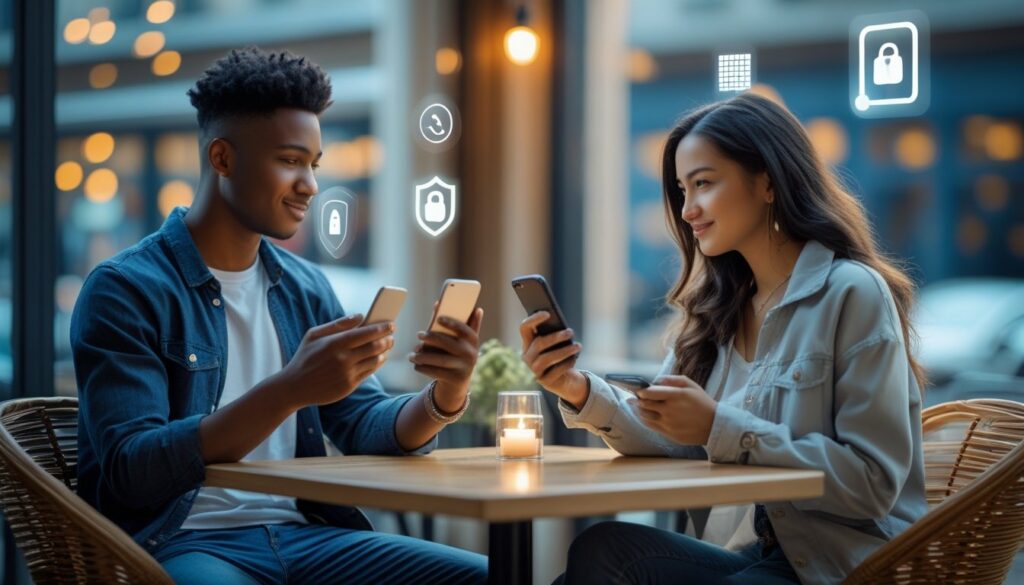Dating in your 30s feels completely different from your twenties. You have more life experience, clearer goals, and less patience for games.
You might also feel more pressure to find “the one” quickly.

Dating in your 30s takes a more intentional approach that focuses on compatibility, clear communication, and knowing what you want in a partner. The good news is that you’re better equipped now to build meaningful relationships than you were in your twenties.
You understand yourself better and have learned from past experiences.
This guide will help you navigate the unique challenges of dating at this stage of life. You’ll learn how to develop confidence, meet quality people, communicate effectively, and handle rejection gracefully while staying focused on finding genuine compatibility.
Key Takeaways
- Dating in your 30s requires more intention and focus on compatibility than casual dating in your twenties.
- Building confidence and expanding your social opportunities is essential for meeting quality potential partners.
- Clear communication skills and handling rejection well are crucial for successful dating outcomes.
Understanding Dating in Your 30s

Dating in your 30s brings both new opportunities and unique challenges compared to your twenties. You’ll find yourself with clearer goals and better self-awareness, but also facing different pressures and expectations.
How Dating in Your 30s Differs from Your 20s
Your approach to dating changes significantly once you enter your thirties. You’re no longer just looking for fun or casual connections.
Emotional maturity becomes your biggest advantage. You understand what you want in a partner and communicate better.
Past relationships teach you valuable lessons about compatibility and red flags.
The dating game moves faster now. You don’t have time for games or unclear intentions.
Most people in their thirties want to know fairly quickly if there’s long-term potential.
Your social circles shrink but become more meaningful. You’re less likely to meet people at bars or parties.
Instead, you might connect through:
- Work events
- Hobby groups
- Dating apps
- Mutual friends
Financial stability also changes the dating landscape. You can afford better dates and experiences, but you also expect more from potential partners.
Key Benefits and Challenges
Dating in your 30s brings distinct advantages. You know yourself better and spot incompatible matches quickly.
Your career is likely more stable, giving you confidence and resources.
Major benefits include:
- Better communication skills
- Clearer relationship goals
- Financial independence
- Less tolerance for drama
You’ll also face new challenges. The dating pool feels smaller since many people are already in serious relationships or married.
Common challenges are:
- Time constraints from career demands
- Pressure from family about settling down
- Dealing with people who have children
- Higher expectations from potential partners
Your biological clock might also create additional pressure. This affects both men and women, though often in different ways.
Shifting Priorities and Expectations
What you want in a partner changes dramatically from your twenties. Physical attraction still matters, but it’s no longer the top priority.
You’re likely looking for someone who shares your values and life goals. Compatibility factors become more important:
- Career ambitions
- Family planning desires
- Financial responsibility
- Lifestyle preferences
Marriage and long-term commitment move to the forefront. You’re not interested in spending years figuring out if someone is “the one.”
Your expectations also become more realistic. You know perfect partners don’t exist, but you recognize which flaws you can accept and which are deal-breakers.
The timeline for relationships accelerates too. You might discuss serious topics like marriage and children within the first few months of dating.
Developing the Right Mindset

Your mindset shapes how you approach dating in your 30s. Building confidence starts with knowing yourself well.
Embracing authenticity helps you attract the right people.
Building Confidence and Self-Awareness
Confidence in dating comes from understanding your worth. You’ve lived through your twenties and learned valuable lessons about relationships.
This experience gives you an edge.
Start by listing your strengths and achievements. Write down three things you’re proud of from the past year.
These can be career wins, personal growth, or ways you’ve helped others.
Self-awareness means knowing what you want. Create a simple list of must-haves versus nice-to-haves in a partner.
Be honest about your deal-breakers too.
Practice positive self-talk before dates. Replace “I hope they like me” with “I’m excited to see if we connect.”
This small shift changes your entire approach.
Your confidence grows when you take care of yourself. Exercise regularly, eat well, and pursue hobbies you enjoy.
When you feel good about yourself, it shows.
Embracing Authenticity in Dating
Authenticity means showing up as your real self, not who you think someone wants you to be. In your 30s, you have less time to waste on pretending.
Don’t hide your quirks or interests. Love reality TV? Mention it.
Prefer quiet nights over clubs? Own it. The right person will appreciate your honesty.
Share your real goals and timeline. If you want kids within five years, say so early.
If marriage isn’t important to you, be upfront about that too.
Authenticity also means being honest about your past. You don’t need to share everything on the first date, but don’t create fake stories about your life.
Ask genuine questions that matter to you. Skip the small talk and dive into topics you actually care about.
This helps you find real connections faster.
Letting Go of Societal Pressures
Society puts pressure on people in their 30s to settle down quickly. You might feel rushed to find “the one” because friends are getting married or having kids.
Ignore timelines that aren’t yours. Your journey is unique, and comparing yourself to others only creates stress.
Some people find love at 25, others at 45.
Stop apologizing for being single in your 30s. You’re not “behind” or “too picky.” You’re being selective, which is smart.
Family and friends might offer unwanted advice about your dating life. Set boundaries by saying “I appreciate your concern, but I’ve got this handled.”
Focus on what you actually want, not what others expect. If you’re happy being single while looking for the right person, that’s perfectly fine.
Expanding Your Dating Opportunities
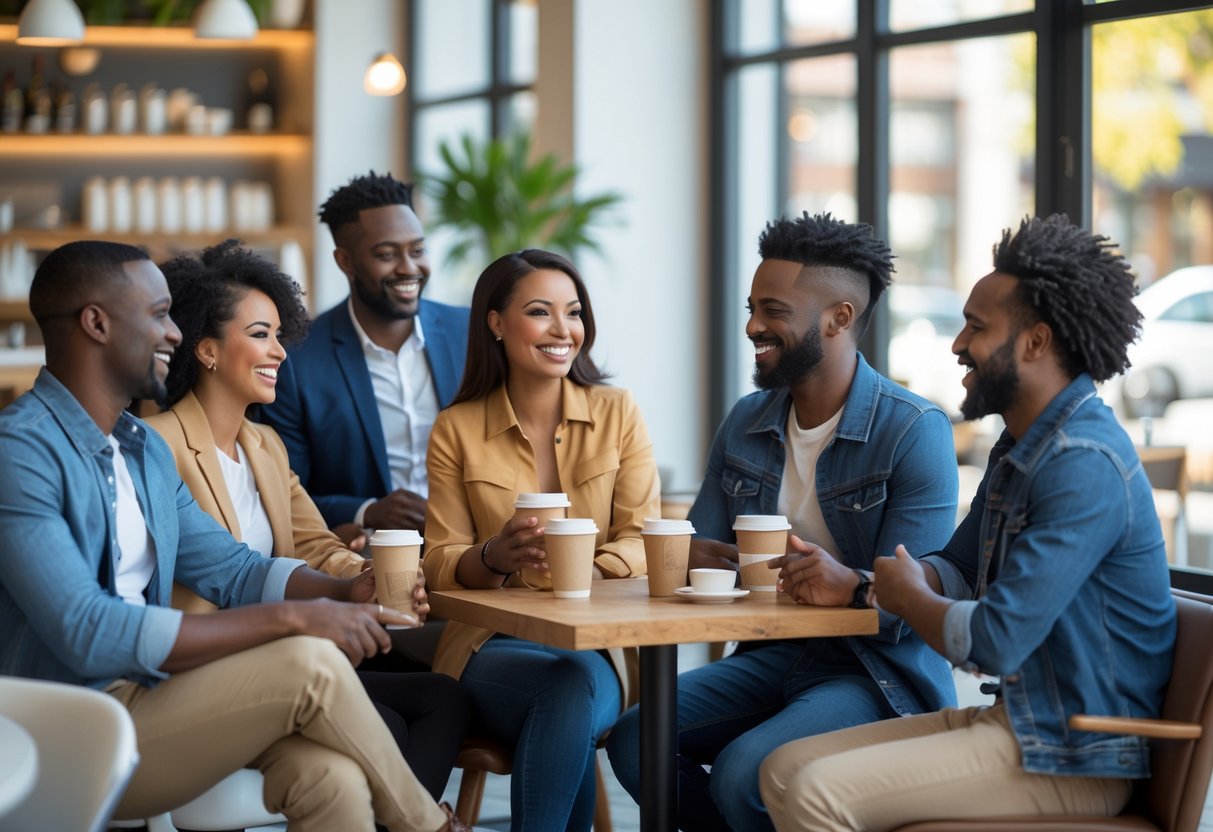
Your social network holds untapped potential. Online platforms offer vast possibilities, and new activities can introduce you to like-minded people.
Each approach brings unique advantages to strengthen your dating game.
Meeting People Through Friends and Social Circles
Your friends already know you well. They can introduce you to people who might be a good match.
Ask your friends if they know anyone single. Be specific about what you’re looking for.
Don’t just say “anyone nice.”
Host or attend social gatherings:
- Dinner parties
- Game nights
- Barbecues
- Holiday celebrations
Say yes to invitations even when you don’t feel like going. You never know who might be there.
Join activities your friends enjoy. This expands your circle naturally.
You’ll meet their friends and coworkers.
Workplace connections work too. Attend office happy hours and company events.
Your coworkers have their own social circles.
Benefits of friend introductions:
- Built-in trust factor
- Shared interests likely
- Natural conversation starters
- Less pressure than cold approaches
Be open about your dating goals. Your friends want to help, but they need to know you’re interested.
Exploring Online Dating Platforms
Online dating gives you access to thousands of potential matches. Choose platforms that fit your goals.
Popular dating apps:
- Bumble: Women message first
- Hinge: Focuses on relationships
- Match: Detailed profiles
- eHarmony: Compatibility matching
Create a strong profile with recent photos. Write about your hobbies and what you want.
Avoid generic phrases like “love to laugh.”
Set aside time each day for messaging. Treat it like any other important task.
Don’t just swipe mindlessly.
Move conversations offline quickly. Suggest meeting within a week of matching.
Long text conversations rarely lead to dates.
Try different platforms if one isn’t working. Each has a different user base and culture.
Online dating tips:
- Use 3-5 recent photos
- Be honest about your age and interests
- Ask questions about their profile
- Meet in public places first
Don’t get discouraged by rejection. Everyone experiences it.
Discovering New Hobbies and Interests
New activities put you around people with similar interests. This creates natural conversation starters.
Activities to try:
- Cooking classes
- Book clubs
- Hiking groups
- Photography walks
- Wine tastings
- Dance lessons
Look for regular activities, not one-time events. You need time to build connections with people.
Volunteer for causes you care about. Animal shelters, food banks, and community gardens always need help.
You’ll meet caring people who share your values.
Take classes at community colleges or recreation centers. Art classes, language lessons, and fitness groups work well.
Join sports leagues even if you’re not athletic. Many leagues focus on fun over competition.
Where to find activities:
- Meetup.com
- Community centers
- Local Facebook groups
- Library bulletin boards
- Eventbrite
Choose activities you genuinely enjoy. Your enthusiasm will show, making you more attractive to others.
The goal isn’t just meeting dates. Building a richer social life makes you more interesting and confident.
Effective Communication and Relationship Skills
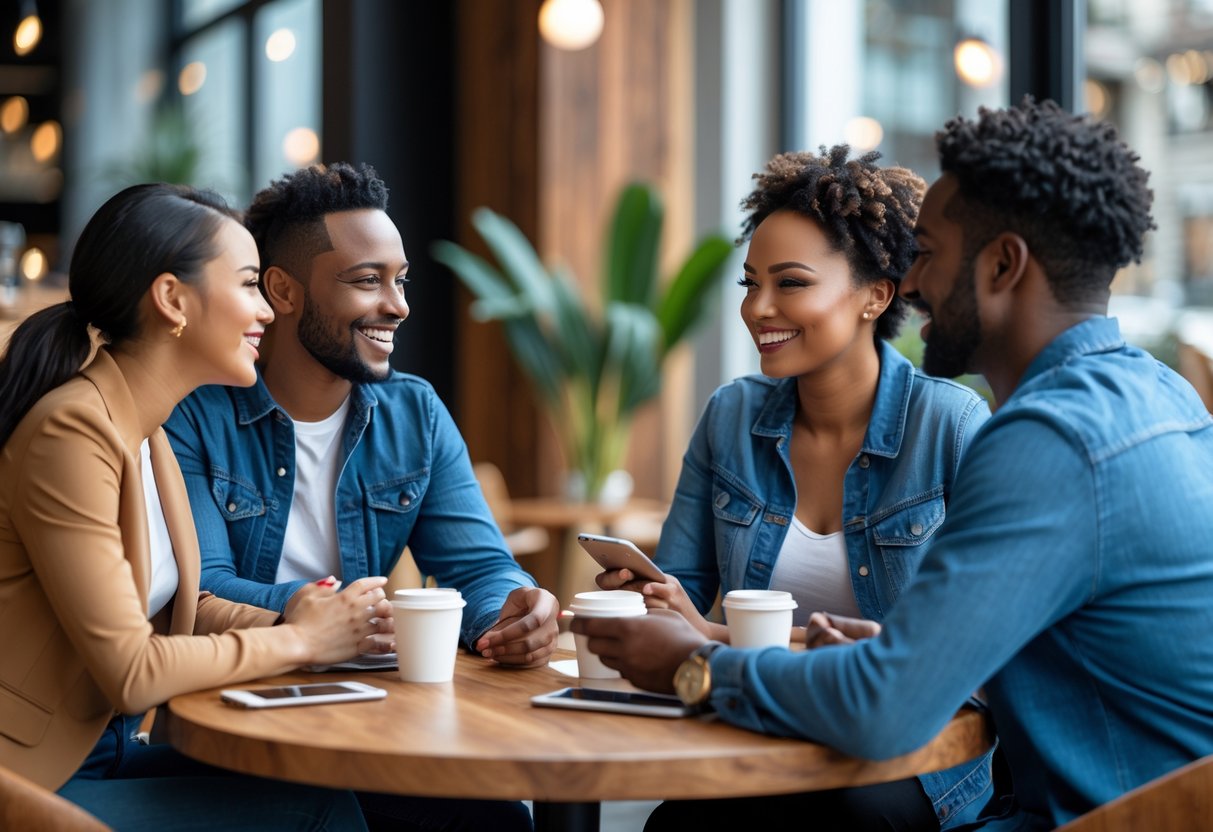
Strong communication skills matter even more when dating in your 30s. You need to know how to listen well, set clear boundaries, and handle disagreements in healthy ways.
Active Listening and Asking Thoughtful Questions
Active listening means giving your full attention when someone talks to you. Put your phone away and look at them directly.
This shows respect and helps you understand what they really mean.
Don’t just wait for your turn to speak. Focus on what they’re saying.
Nod when you understand something important. Ask follow-up questions that show you care about their thoughts.
Good questions to ask:
- “How did that make you feel?”
- “What was the best part of your day?”
- “Tell me more about that”
Avoid questions that only need yes or no answers. Open-ended questions work better for deeper conversations.
When dating in your 30s, you want to know if someone shares your values and goals. Ask about their career plans, family wishes, and life dreams.
Setting Healthy Boundaries
Boundaries are rules about what you will and won’t accept in relationships. They protect your time, energy, and feelings.
Clear boundaries help prevent problems before they start.
Common boundaries include:
- How often you text or call
- When you’re available to hang out
- What topics you don’t want to discuss yet
- Physical intimacy limits
State your boundaries clearly and kindly. Say something like “I prefer not to text after 10 PM on weeknights” instead of getting upset when someone messages you late.
Respect other people’s boundaries too. If someone says no to something, don’t try to change their mind.
This builds trust and shows maturity.
Some people might push against your boundaries. Stand firm when this happens.
Someone who truly cares about you will respect your limits.
Dealing with Conflict in Relationships
Disagreements happen in all relationships. The key is to handle them in ways that bring you closer together.
Stay calm when conflicts arise. Take deep breaths before you respond.
If you feel too angry to talk kindly, ask for a short break to cool down. This helps you avoid saying things you might regret.
Use “I” statements instead of “you” statements. Say “I feel hurt when…” rather than “You always…”
This approach prevents the other person from getting defensive. It keeps the conversation focused on your feelings.
Steps for healthy conflict resolution:
- Listen to understand instead of trying to win.
- State your feelings without blaming the other person.
- Work together to find solutions.
- Agree on how to prevent similar issues in the future.
Stick to the problem at hand. Don’t bring up past arguments during current ones.
This keeps discussions productive and focused. It helps you resolve issues more effectively.
Sometimes, you need to agree to disagree. Not every issue requires a winner and a loser.
Pick your battles carefully. Compromise when possible.
Handling Challenges and Rejection

Dating in your 30s brings unique challenges. You may face rejection more directly and experience burnout from endless swiping.
You also juggle multiple responsibilities while searching for love. This can make dating feel overwhelming.
Navigating Rejection with Resilience
Rejection feels different in your 30s. You likely know what you want, so it can feel more personal.
Don’t take it personally. When someone says no, it doesn’t reflect your worth.
They might have their own issues or want different things. Sometimes, they just aren’t ready for commitment.
Here’s how to bounce back stronger:
• Set a 24-hour rule – Allow yourself to feel your emotions for one day, then move forward.
• Focus on what you learned – Did you notice something about your communication style?
• Remember your wins – Keep a list of positive dating experiences to review when you’re feeling down.
Reframe rejection as redirection. That person wasn’t right for you.
You’re one step closer to finding someone who values what you offer. Practice self-compassion.
Talk to yourself like you would talk to a good friend. Remind yourself that one bad date doesn’t define your worth.
Overcoming Dating Fatigue
Dating burnout is common, especially when you juggle apps, first dates, and small talk. Your energy is limited, and that’s okay.
Recognize the warning signs of dating fatigue:
Feeling tired before dates
Going through the motions without real interest
Becoming cynical about finding love
Dreading conversations about dating
Take strategic breaks. Delete dating apps for a week or two.
Use this time to focus on hobbies, friends, and activities you enjoy. This helps you recharge.
Quality over quantity matters more in your 30s. Instead of several mediocre dates each week, aim for one meaningful connection every two weeks.
Change your approach if you feel stuck. Try new activities, different apps, or ask friends to introduce you to someone new.
A fresh perspective can help you break out of dating ruts.
Balancing Career, Family, and Dating
Your 30s are busy. You might be building your career, caring for parents, or raising kids.
Adding dating to this mix can feel overwhelming. Schedule dating like you schedule other priorities.
Block time for dating activities as you would for work meetings or family dinners. Be honest about your availability.
Tell potential partners about your time constraints early on. The right person will understand and respect your schedule.
Use your time efficiently:
Choose restaurants near your home or work
Plan lunch dates instead of long dinner commitments
Combine dating with activities you already enjoy
Don’t feel guilty about prioritizing dating. Finding a partner is just as important as your career or family obligations.
Decide what is truly urgent and what can wait. Sometimes, a work project can wait if you have a promising second date.
Intentional Dating and Finding Compatibility
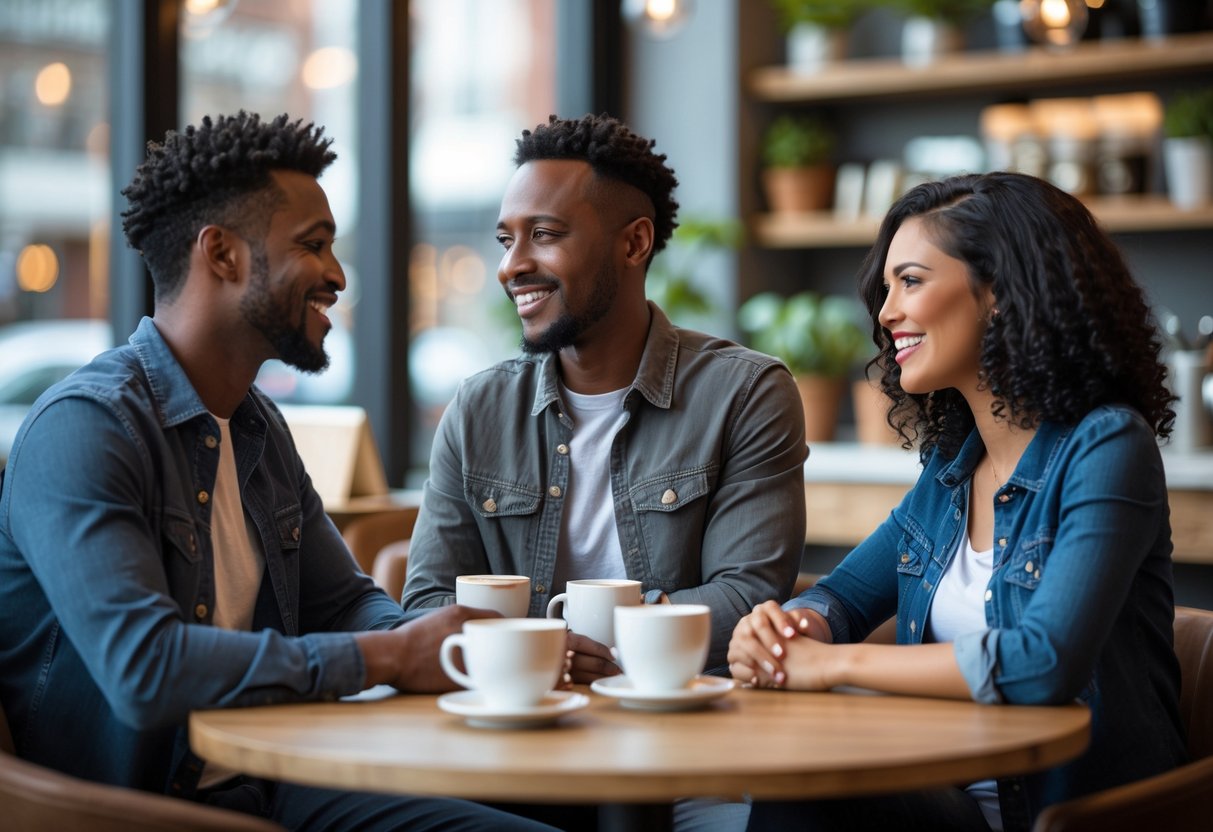
Dating in your 30s means being clear about what you want. Find someone who shares your core values.
Know your deal-breakers. Date with purpose and build real connections that go beyond surface attraction.
Identifying Your Values and Non-Negotiables
Your values guide your daily decisions. These might include family, career goals, religion, or lifestyle choices.
Take time to write down what matters most to you. This helps you stay focused on what you need in a relationship.
Core values to consider:
Family and children preferences
Career and financial goals
Religious or spiritual beliefs
Lifestyle habits (fitness, travel, social life)
Communication styles
Non-negotiables are different from preferences. These are the things you cannot compromise on in a relationship.
Maybe you need someone who wants kids. Perhaps you require a partner who doesn’t smoke.
Create two lists: your top 5 values and your top 3 non-negotiables. Keep these in mind when you meet someone new.
Your values help you spot red flags early. If someone shows they don’t share your core beliefs, it’s better to move on quickly.
Dating with Purpose and Clarity
Purpose-driven dating means you are looking for a long-term partner. You are not just dating for fun or to pass the time.
This approach saves you time and emotional energy. Be upfront about what you want within the first few dates.
You don’t have to mention marriage right away. Just be clear about seeking something serious.
Questions to ask yourself:
What type of relationship am I looking for?
What are my relationship goals for the next 2-3 years?
Am I ready to commit time and energy to someone?
Use dating apps and platforms that match your goals. Some apps focus on serious relationships, while others are for casual dating.
Don’t spend months with someone who wants something different. If they say they’re “not looking for anything serious,” believe them.
Fostering Authentic Connections
Authenticity means showing up as your real self. Don’t try to present a polished version just to impress someone.
Share your genuine interests and opinions. It’s okay to talk about your flaws too.
Let go of the need to be perfect on dates. Tell stories about your real life and challenges you’ve faced.
This approach helps you connect on a deeper level.
Ask meaningful questions that go beyond small talk:
- What motivates you in life?
- How do you handle conflict?
- What does your ideal weekend look like?
Pay attention to how your date treats others around them. Notice how they interact with servers, friends, or even strangers.
Their behavior can reveal their true character.
Build emotional intimacy step by step. Share personal stories and listen closely when they share theirs.


